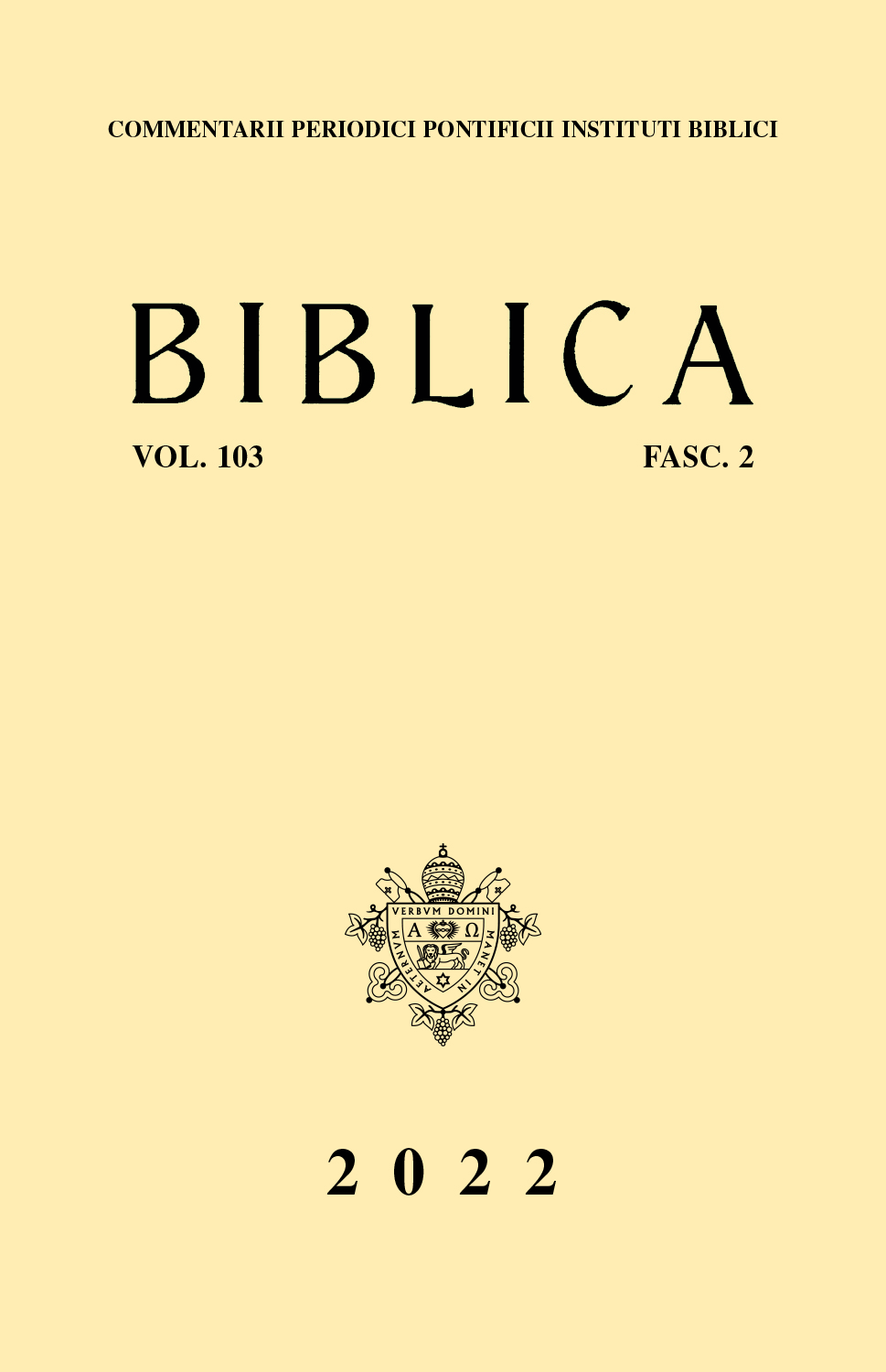 previous article in this issue previous article in this issue | next article in this issue  |

Preview first page |
Document Details : Title: Rejection of those Sent or Contempt for the Human Being in 1 Thess 4,7-8? Subtitle: How Epicheirema Makes a Difference Author(s): PITTA, Antonio Journal: Biblica Volume: 105 Issue: 1 Date: 2024 Pages: 98-112 DOI: 10.2143/BIB.105.1.3293259 Abstract : According to a widespread interpretation, 1 Thess 4,8 was associated with Luke 10,16 and/or to Paul’s first preaching against πορνεία in Thessalonica. Despite certain similarities, the differences between Luke 10,16 and 1 Thess 4,8 are more significant. At no point in 1 Thess 4,7-8 does any hint emerge of contempt against those sent and those who sent them. Much less is there any mention of a rejection of the preaching of Paul and his collaborators against indecency in 1 Thess 4,8. Rather contempt for the human person by indecency is contempt for God and for His Holy Spirit, namely against the sanctification of one’s own body and the body of all believers in Christ. The comparison between the epicheirema in 1 Thess 4,7-8 and the enthymeme in 1 Cor 6,19-20 clarifies the meaning of the noun ἄνθρωπος in 1 Thess 4,8. At issue is the human being, despised through indecency, which ultimately refers to contempt for God. |
|


